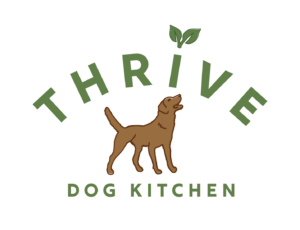In May this year we joined forces with traditional veterinary medicine and homeopathy to help our dog, Jessie, work through a few health issues, including skin irritation, spay incontinence, fur loss and disorientation. What started as concern for a lump on her underside led us down the path to homeopathy for dogs.
Homeopathy – The branch of medicine which is based on the principle that disease can be cured by strengthening the body’s natural defence mechanism. This is in contrast to traditional (allopathic) medicine which uses drugs to suppress symptoms – which are the visible result of the body’s attempt to heal itself.
Where our homeopathy journey begins
In December 2021 Jessie and I visited her vet to discuss the lump I found and the possible cause of it. I had noticed that she had excessively been itching the area with her back leg for an extended period of time. Her vet and I agreed to monitor the lump and they suggested steroids to help with the itching, by suppressing the symptoms. I turned down the suggestion of the steroid prescription because steriods would always be a last resort for us to give Jessie; and we had not exhausted all our options…we had only scratched the surface.
Over the summer months Jessie’s itching increased and was soon joined with licking. I’m not sure what’s worse, the sound of your dog about to throw up or the sound of them licking. It became so intolerable for us, that we banished our poor girl to the family room for bedtime.
During this time Jessie also became disorientated some evenings, which really worried us. Was the itchiness and disorientation related? Or, was it the hot, dry summer heat of the Wairarapa that was affecting our girl? We weren’t sure but it was one more piece of the puzzle to work through.
We continued to monitor Jessie’s behaviour, food intake and energy levels. I knew something was going on with Jessie, but I couldn’t figure out what. Did she become intolerant to her fresh food diet? Was there a particular protein, vegetable, oil, or other food that her body no longer liked? Was there more pollen in the air this summer, that for whatever reason started affecting her after 10 years? Was there something more sinister going on inside her and this was her body telling her and us keep digging? We didn’t know.
I did know that I wanted the cause of the itching, licking, disorientation to be uncovered, instead of treating the symptoms. With traditional veterinary medicine, medication is often prescribed to your pet to treat the symptoms and not the cause, which means you may never truly help your dog heal.
The journey turns towards holistic veterinarian medicine
In March this year we reached out to a holistic/integrative vet that was familiar with Jessie’s medical history. He recommended a full thryroid check be completed. Depending on the results we could treat her for hyperthyroidism. As I waited for the results to come back I hoped that her levels would be below the norm because then we could treat the cause. Fortunately, her thyroid results came back with good numbers. The holistic/integrative vet suggested additional supplements to add into her diet, but essentially we were back to square one.
Upon receiving the thyroid results Jessie’s vet concluded that the cause of the itchiness is atopic dermatitis and their recommendation was a prescription of either Cytopoint or Apoquel. I went home to research both and concluded that the side effects of both did not justify putting Jessie on either of them. Her itchiness did not, in my opinion, warrant such strong and expensive medication. There will be dogs who will have no other option but to be on one of them to relieve their discomfort.
Again, we were back to the drawing board. By this time we were heading into autumn. Jessie was on new supplements to help with the itchiness, Quercetin. I tweaked her diet to eliminate foods that were high in histamine just in case the itching and licking was related to a food allergy.
The next steps to take were beyond my knowledge and expertise. I needed to reach further afield. This is where our journey lead us to homepathy for dogs, specifically our dog.
Homeopathy for Dogs: The start of our journey with Wild Remedy
On 2 May I had my first video appointment with Steph of Wild Remedy in Taupo. It was a wonderful experience. We spoke for over an hour as I told Steph all about Jessie’s history, including how she joined our family, medical history, diet, behaviour and more. Steph collected as much information from me to understand Jessie as a dog to be able to provide her with a remedy that would help her heal. Homeopathy is a bit of trial and error. You try one remedy, see how your dog responds, both good and bad and work from there.
Three days after our initial consultation Steph messaged that she suspected the cause of her skin issues was likely due to a medication, Progynova, which she had been on for 5+ years. The Progynova is a human hormone replacement therapy that treats spay incontinence, which Jessie suffered from since she was 2. She would leak urine, which upset her. When I read Steph’s findings I felt relief, hope, but also guilt and shame because I could have prevented her from possibly going through this. It was really difficult for me to move past those negative thoughts and look forward to helping Jessie heal. I was nervous that if we took her off the Progynova she would start leaking urine again and possibly become depressed, as dogs hate soiling themselves. With Steph’s support I reached out to our vet about stopping the medication. He fully supported the plan and showed interest in my working with a homepath. So, Steph sent us the first round of suggested remedies for Jessie to try.
Since then we have tweaked the remedies and made adjustments as needed. While Jessie still itches and licks, it has reduced significanlty. The big winner is that she is medication free with little to no leaking. We’re currently working on fur regrowth, but even if her fur stays thin in spots I’m ok with that. We have a happy, thriving almost 11 year old dog.
We are in regular contact with Steph about Jessie’s progress. Some week’s she might hear from me just once with an update or question. Other weeks it might be 20 texts in one day, which happened, when Jessie had a response to a remedy, that worried us. Steph supported us through that and she continues to support us. We even had the pleasure of meeting each other when we were driving through Taupo at the end of June. It allowed Steph to collect more information being able to look at and feel Jessie, as well as watch how she behaves.
Bringing homeopathy and traditional medicine together
Homeopathy for pets is a complementary medicine to traditional veterinary medicine. The two methodologies can and should be used together to support the animal that needs help. I say this often, as our pets can’t tell us what’s wrong, we have to be their voice and advocate for them. Seek second, third, fourth opinions. Look further afield than New Zealand. Do what you need to do to support your pet to live a long and healthy life. To learn more about homeopathy for your dog or pet visit Wild Remedy.
Note – Any and all information presented in this post is for informational purposes only and based on Hilary’s personal experience. These statements have not been evaluated by a veterinarian. This post is not intended to diagnose, treat, cure or prevent any disease and is not intended to be a substitute or replacement for medical treatment. Please seek the advice of a veterinarian or homeopath for your dog’s specific health concerns.






0 Comments